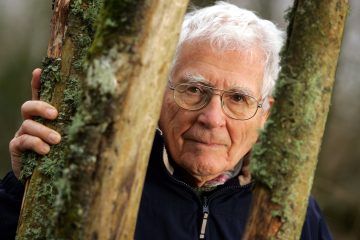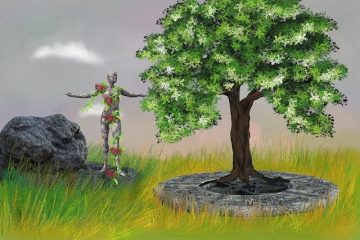Gaia hypothesis
gaia theory climate change
Gaia Theory suggests that Earth functions as a self-regulating system, integrating living organisms with their inorganic surroundings. As climate change challenges this balance, understanding Gaia could illuminate our path to sustainability and resilience.
Gaia hypothesis
gaia theory climate change
Gaia Theory posits that Earth functions as a self-regulating entity, where living organisms interact with their environment to maintain conditions for life. As climate change accelerates, understanding this interconnected system becomes crucial for fostering balance and sustainability.
James Lovelock
james lovelock ai book
In his latest work, “James Lovelock: Conversations with AI,” the renowned scientist delves into the synergy between artificial intelligence and our planet’s future. Lovelock’s reflections inspire a profound exploration of technology’s role in environmental stewardship.
Gaia hypothesis
gaia hypothesis importance
The Gaia Hypothesis invites us to view Earth as a self-regulating organism, where every component, from microbes to humans, plays a vital role. Understanding this interconnectedness is crucial for fostering ecological balance and sustainable living.
James Lovelock
james lovelock premios
James Lovelock, the visionary scientist behind the Gaia theory, has received numerous prestigious awards throughout his career. His groundbreaking ideas have reshaped our understanding of Earth’s systems, earning him accolades that celebrate his lasting impact on ecology and environmental science.
Gaia hypothesis
gaia hypothesis assignment
The Gaia Hypothesis presents a captivating view of Earth as a self-regulating system, where living organisms and their environment coexist in a delicate balance. This assignment invites exploration of its implications for ecology and sustainability.
James Lovelock
james lovelock information
James Lovelock, the visionary scientist and environmentalist, is renowned for his Gaia theory, which proposes that Earth functions as a self-regulating organism. His innovative ideas inspire a deeper understanding of our planet’s interconnected systems and urgent ecological challenges.
Gaia hypothesis
gaia theory james lovelock pdf
Discover the intriguing principles of Gaia Theory, conceived by James Lovelock, which posits that Earth functions as a self-regulating system. Dive into the PDF to explore its implications for ecology, climate change, and our planet’s future.
James Lovelock
novaceno james lovelock pdf
In “Novaceno,” James Lovelock explores the intricate dance between humanity and nature in our changing climate. This thoughtful PDF invites readers to ponder our role within Earth’s evolving system, urging a reflective approach to sustainability and coexistence.








